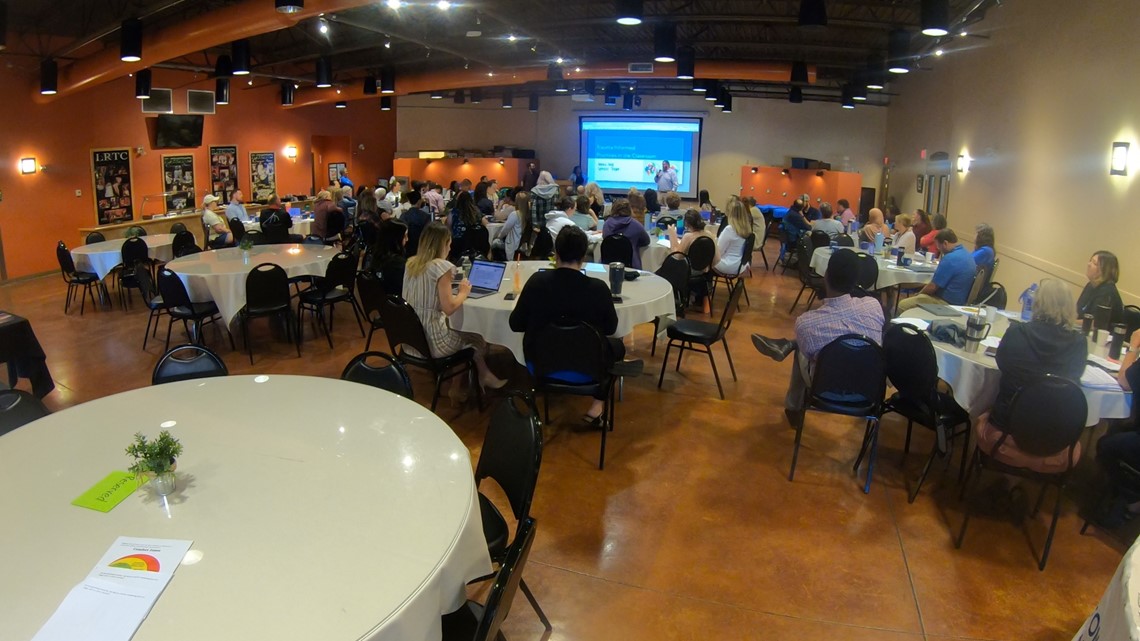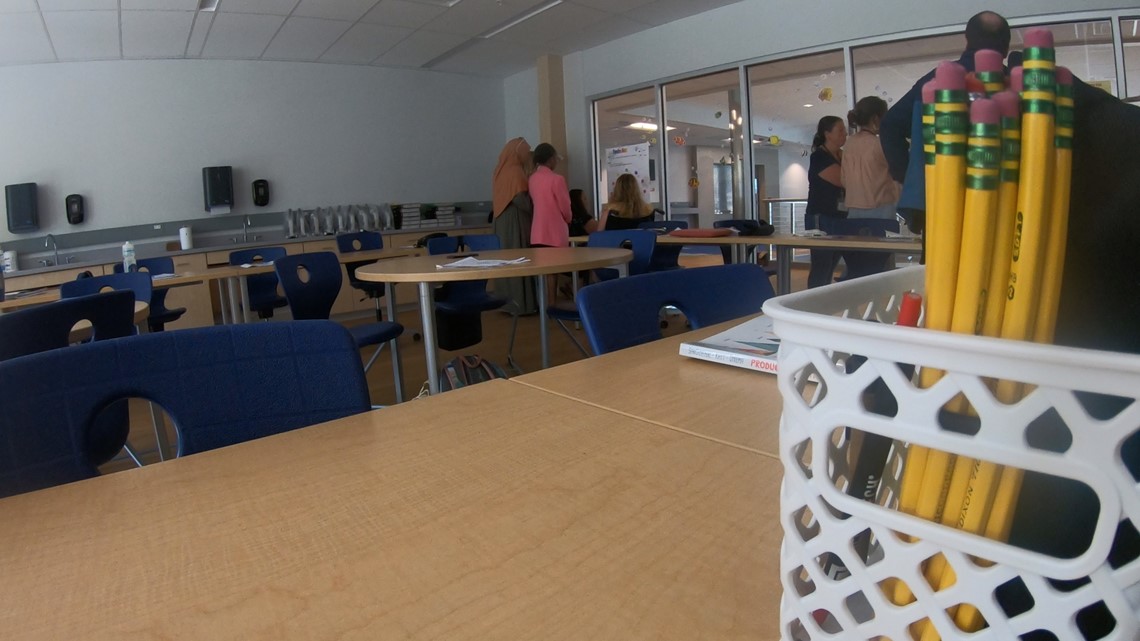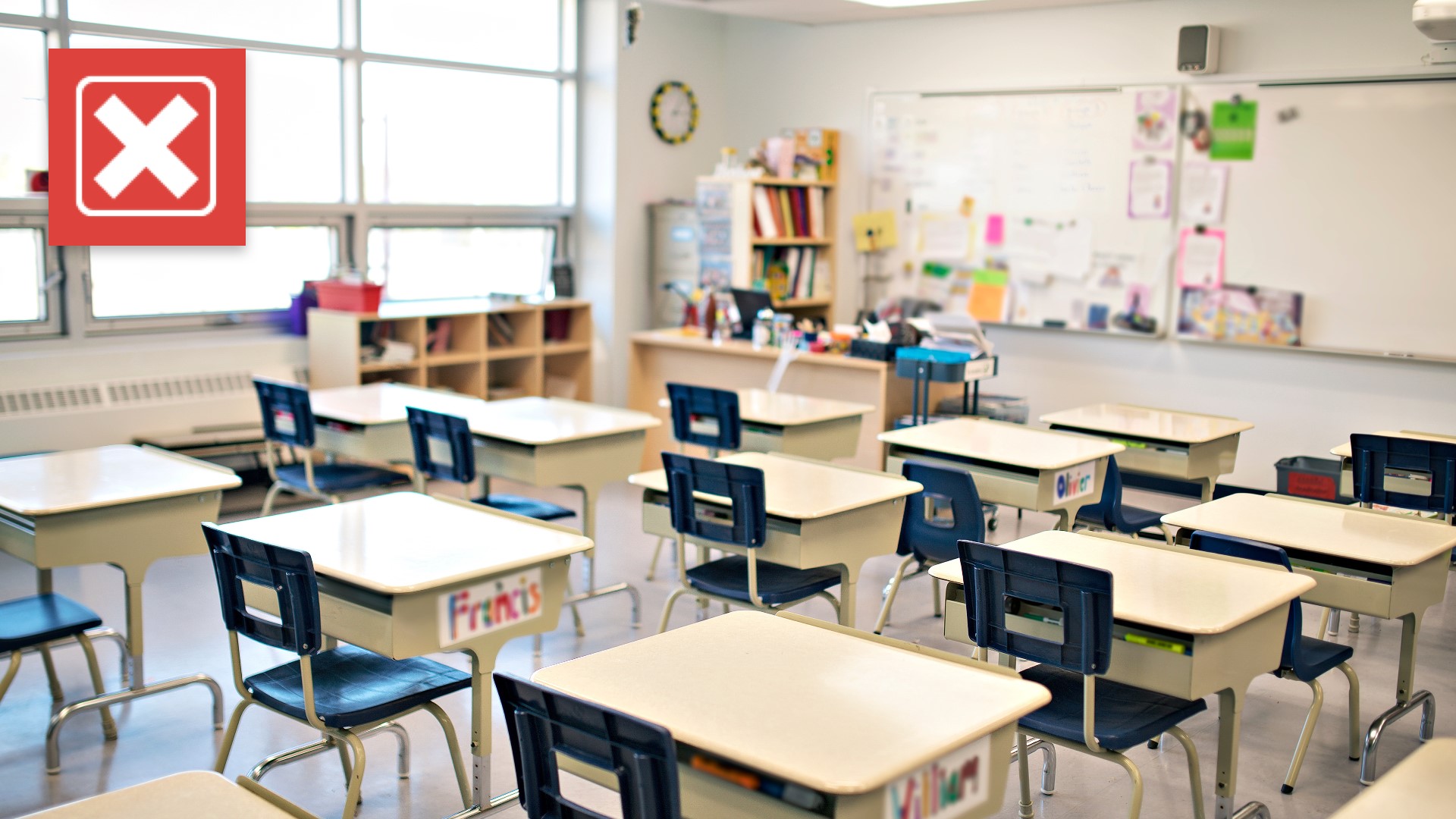LEWISTON, Maine — For Maine students, the summer always seems to slip by in the blink of an eye.
We've officially entered that time of the year when parents are buying new binders and notebooks and school districts are preparing for the new academic year.
Some of us may think teachers and other school staff spend the entire summer on the beach and relaxing. There is of course time for that, but there is a lot of work that goes on behind the scenes.
“The first two weeks of the summer I was training, the third week of summer I went and visited my family and then after that, I’ve just been working away," Jaye Rich, a multi-lingual teacher with Lewiston schools and President of the Lewiston Education Association, said Thursday.
Her students don't step into the classroom until next week, but Rich was joined by some of her colleagues Thursday as new teachers in her district went through the annual pre-school meetings and trainings.
“We have trainings all summer long, we have teachers in their classroom all summer long," Lewiston Public Schools Superintendent Jake Langlais said. "I think that speaks to the professionalism of our teachers but also speaks to the fact that they’re getting ready all year round for the next piece, for that next kid walking through the door.”
A new school year may be exciting, but it can also have its challenges. Especially after COVID-19 drastically changed school culture, districts are working to address students' mental health needs now more than ever before.
But, teachers and faculty go through their own battles as well. During Thursday's new teacher meetings, Langlais reminded his staff to take time to focus on themselves.
“So one of the things we try to stress is making sure you maintain a healthy lifestyle," he added.
Something Langlais shared with those in attendance Thursday, and shared with the school community via a letter, is a reminder for kids, parents, and educators to get back into a routine that works for them ahead of the school year.


"Our energy can wear thin and that’s when we can really have a hard time managing that toxic level of stress that can be put on teachers," he added.
Rich said she and her colleagues love teaching but also understand the job is over-stimulating and know they need taking mental health breaks too. She mentioned sometimes she'll take a few moments to collect her thoughts before a class, or will watch another teacher's class for a few minutes if they had a tough day and need a moment to themselves.
“And [teachers] also have trauma in their own lives, and hurt in their own lives, and they still show up to school every day to teach," she added.
The topic of mental health is being brought up more and more with school counselors. Decades ago, your counselor may have helped you with college placement or academic support. Now, many find themselves working with students' emotional and mental well-being.
Scott Harris is the Senior Placement Councilor at Scarborough High School and while he focuses on the academic side, he's had to help students mentally during and after the pandemic.
"How do we help create students that are nimble and can really adapt to a changing world," he said. “How do we build that belonging and that togetherness that we had before the pandemic?"
Harris said he got into this career after feeling inspired by his own counselors back when he was in school. He admits the landscape of high school in Maine has drastically changed since he graduated 20 years ago. But, he said, counselors are still there to help kids pick their dream college, dream career, or work through mental health questions.
Dr. Rebecca Edelman is a Counselor Educator at Husson University and teaches future school staff at the graduate degree level. She saw firsthand how the pandemic disrupted life on a college campus.
“They missed those social interactions, they missed the community building," she said. “If you don’t have community, you’re not going to feel like you belong, students are not going to feel welcome.”
She always reminds her students, and reminds Maine students in general, that there are mental health resources available on campus and someone is always willing to talk. Edelman said she and her co-workers would even support each other when someone wasn't having a good week mentally.


The reason Edelman, Harris, Rich, Langlais, and educators around the state do what they do isn't for the money, it's for the rewarding moments in the classroom.
Langlais reminded his staff of that Thursday.
“Find those moments in the day where you can kind of pause to yourself as an adult to say, this is a beautiful thing what I’m doing that I’m impacting all these kids lives and harness those moments when you can," he said. “It’s such a hard job as an educator, it’s also the most rewarding thing in the world when a kid pops up when you never expect it, to say thank you for what you did for me.”
A simple thank you can go a long way.
Rich said Maine schools are making progress in breaking the stigma around mental health, but more work can be done to secure more funding so more districts can establish resources and programs for students, staff, and parents.
“The more money that we’re putting into mental health I think is only going to be more beneficial for us in the end and I think it’s a good investment in our community," she added.
More NEWS CENTER Maine stories
https://youtube.com/playlist?list=PLKtbYaDEyIB-rpQjYlHJhNqZ_cN5Z0T6w

